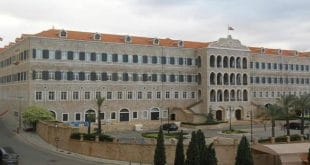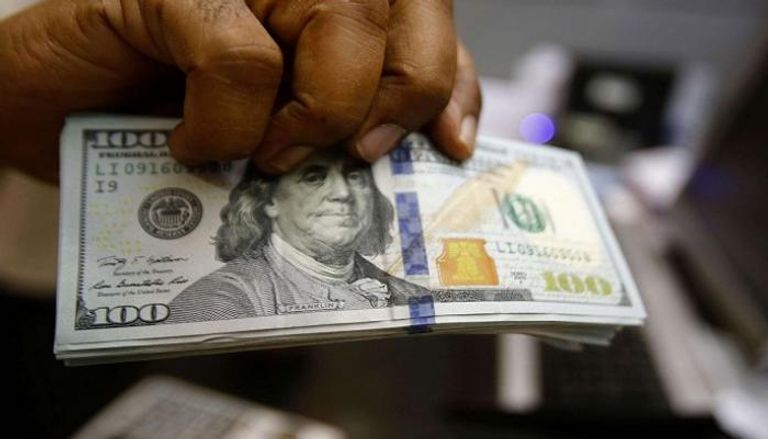هل صحيح ان القطاع التجاري ” بالأرض ” وخسائره كبيرة من جراء الاعتداءات الاسرائيلية على لبنان؟ هذا السؤال الذي طرحته “الديار” على رئيس جمعية تجار جونيه وكسروان الفتوح سامي عيراني رد عليه بالقول:
“نسمع الكثير عن الوضع المأسوي الذي وصل اليه القطاع التجاري الى حد ان البعض “حطو بالأرض بالكامل ” ونعته بأوصاف لا تتطابق حقيقة مع الواقع . فصحيح ان ما نشهده من حرب شرسة على لبنان، والخسائر الكبيرة التي تتكبدها كامل القطاعات على رأسها القطاعين السياحي والتجاري ، ومن قتل للبشر وتدمير للمنازل والمرافق والبنى التحتية وتهجير مئات الآلاف من سكان المناطق التي يستهدفها العدوان قد ارخى هذا الوضع كله بظلاله على وضعية الاسواق بحيث انعكس تراجعاً حاداً تفاوتت ارقامه حسب المناطق والقطاعات من ٣٠٪ الى ٨٠ ٪ ، هذه النسب قد عهدها القطاع في مناسبة الازمات السابقة حين أدت إلى مثل هذا الركود ، وكان يحدث عند اول فرصة انفراج امني وسياسي ان يعاود القطاع لملمة جراحه ويستعيد جزءاً كبيراً من خسائره وهذا ما نأمل حصوله عند انتهاء الحرب . فالتاجر اللبناني اصبح لديه مناعة ومحصناً تجاه الأزمات والخضات التي واجهها في المراحل السابقة ، وفي كل مرة كنا نراه يعاود النهوض بسرعة فائقة . وأسواقنا وان لم تشملها الأعمال الحربية بشكل مباشر لكنها تأثرت من تداعياتها كغيرها من الأسواق المحايدة وتشهد انخفاضاً للمبيعات بأكثر من النصف . فالأولوية عند الناس اليوم هي لشراء المواد الغذائية وتمتنع عن شراء غير الضروريات .”
أضاف “اما الخسائر التي يتكبدها القطاع ككل منذ ان انطلقت حرب المساندة، فكبيرة جداً. فالتدمير الممنهج للبنى التحتية للاسواق خاصة في المناطق المستهدفة جعلها غير صالحة لاستمرار العمل التجاري، وقد انتقل معظم اصحاب المؤسسات والشركات التجارية ، إلى المناطق التي لم تصل اليها يد الاجرام ناقلين بضائعهم اليها حيث اتخذوا فيها محل اقامة جديدا ليمارسوا أعمالهم ولو بالحد الادنى “.
وأوضح “اما الخسارة الكبرى فهي الاقتصاد الوطني المنهك مع خسارة يومية ما يقارب ٣٠ مليون دولار ، الذي ما زال يقاوم وهو في الرمق الأخير تجاه شح المداخيل مع توقف محركات القطاعين السياحي والتجاري وتضرر الزراعة والإنتاج الصناعي . فتكلفة الدمار وتداعياته سوف ترهق الاقتصاد الذي اشتد نزيفه ، اذ يخشى ان تمتد يد الصرف على مال الاحتياط والذهب لتسديد فاتورة التعويضات الباهظة للخسائر البشرية والمادية الهائلة ، وهناك تكون الطامة الكبرى. فكلما طال امد الحرب تضاعفت الخسائر وسجل الناتج المحلي هبوطاً، وشحت العملات الصعبة وازداد ارتفاع التضخم بسبب توقف المؤسسات والقطاعات الانتاجية عن العمل مع صرف جماعي للموظفين والعمال ، والخسائر في القطاع الصحي والتربوي والبنى التحتية لا تقدر بثمن وهي بمليارات الدولارات” .
وختم “المطلوب اعتماد منهجية طوارئ تراعي الوضع المؤلم الذي نحن فيه اقله بذل أقصى الجهود لوقف اطلاق النار وانتخاب رئيس يستطيع جمع اللبنانيين وإدارة الأزمة الناتجة من الحرب ولاعادة تشغيل المؤسسات الخدماتية مع طلب مساعدات طارئة من الدول الصديقة لتمويل خسائر الحرب “.
المصدر: جوزف فرح – الديار
Irani: Our Losses in the Commercial Sector Are Huge, and Some Traders Have Moved Their Goods to Safer Areas
Is it true that the commercial sector in Lebanon is completely “on the ground” with enormous losses due to Israeli attacks? This question was posed by “Al Diyar” to Sami Irani, head of the Jounieh and Keserwan Traders Association. Irani responded by saying:
“We hear a lot about the disastrous situation of the commercial sector, with some even claiming it has completely collapsed, which is not entirely accurate. While it is true that Lebanon is facing a fierce war, and all sectors, especially tourism and commerce, are suffering great losses, the human toll, destruction of homes, infrastructure, and the displacement of hundreds of thousands of residents have all cast a shadow on the markets. Sales have sharply declined, with percentages varying between 30% and 80%, depending on the region and sector. However, this is not unprecedented, as the sector has faced similar recessions in previous crises. Each time, once a security or political breakthrough occurs, the sector manages to recover a significant portion of its losses. The Lebanese trader has developed resilience to crises, quickly bouncing back each time. While our markets have not been directly hit by war, they have been indirectly affected, with sales dropping by more than half. People’s priority now is to purchase essentials like food, avoiding non-essential items.”
Irani added, “The overall losses suffered by the commercial sector since the start of the war have been massive. The systematic destruction of infrastructure, particularly in targeted areas, has made those areas unsuitable for commercial activity. Many business owners have relocated their operations to safer regions, taking their goods with them, where they continue their activities at a minimal level.”
He also noted, “The biggest loss is to the national economy, which is already struggling, with daily losses amounting to approximately $30 million. The economy continues to bleed, with a sharp decline in revenues due to the paralysis of the tourism and commercial sectors, alongside the damage to agriculture and industrial production. The cost of destruction will further burden the economy, which is already under severe strain. There is a growing fear that the state may tap into its reserves and gold to cover the enormous compensation bill for the human and material losses, which would be disastrous. The longer the war drags on, the greater the losses, with the GDP plummeting, hard currencies becoming scarcer, inflation rising, and businesses shutting down, leading to mass layoffs. The losses in the healthcare, education, and infrastructure sectors are immeasurable, amounting to billions of dollars.”
He concluded by saying, “What is needed is an emergency plan that takes into account the painful reality we are living in. At the very least, we must make every effort to stop the fighting, elect a president capable of uniting the Lebanese and managing the crisis caused by the war, and restart essential service institutions. Additionally, we must seek urgent assistance from friendly countries to help cover the costs of the war.”
Translated by economycsopes team
 سكوبات عالمية إقتصادية – EconomyScopes إجعل موقعنا خيارك ومصدرك الأنسب للأخبار الإقتصادية المحلية والعربية والعالمية على أنواعها بالإضافة الى نشر مجموعة لا بأس بها من فرص العمل في لبنان والشرق الأوسط والعالم
سكوبات عالمية إقتصادية – EconomyScopes إجعل موقعنا خيارك ومصدرك الأنسب للأخبار الإقتصادية المحلية والعربية والعالمية على أنواعها بالإضافة الى نشر مجموعة لا بأس بها من فرص العمل في لبنان والشرق الأوسط والعالم




